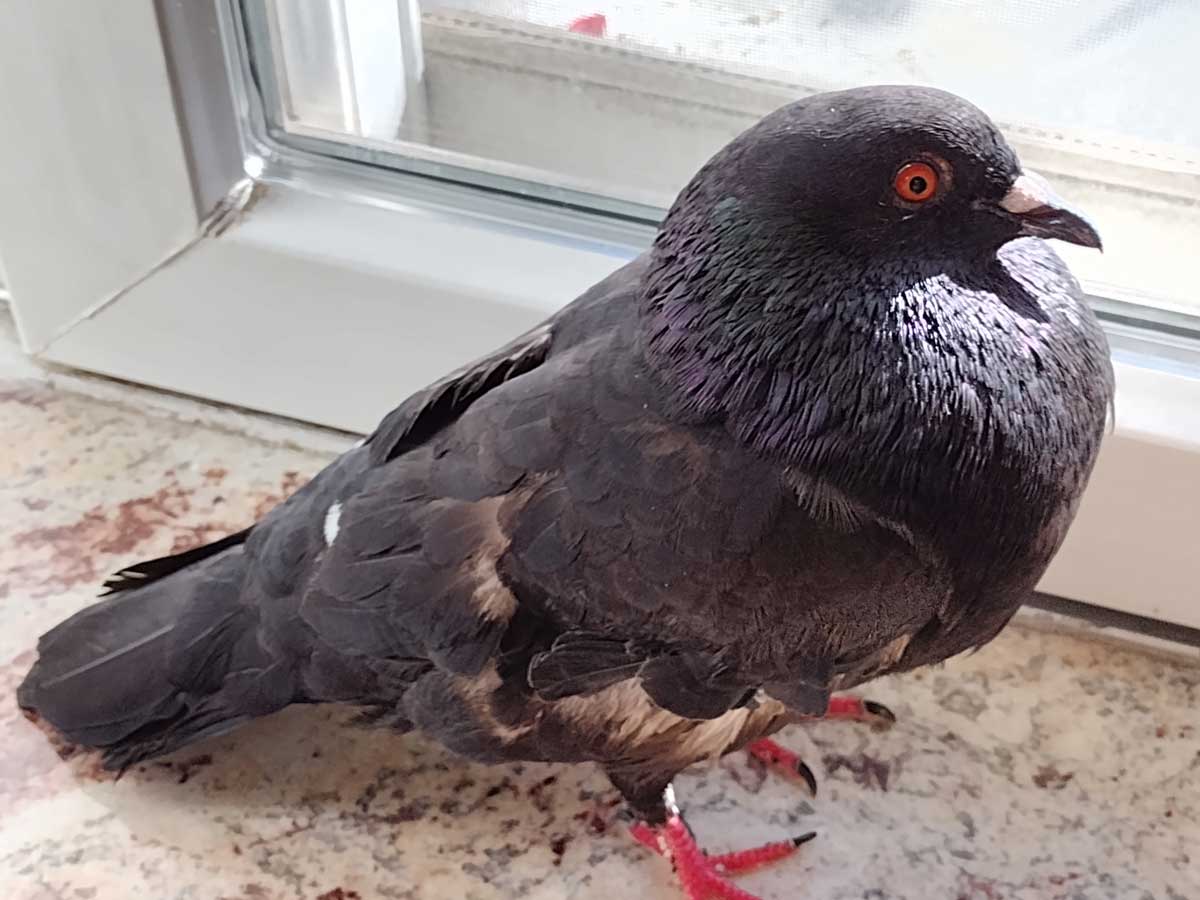If you live in Brooklyn long enough, you’ll eventually come across a bird that needs help, whether it’s a pigeon recovering from a window strike, a stunned sparrow, or a starling in distress. Because my friend Juliet Hanlon has been so active rescuing birds in distress (I think her rescue count is up to 22 now), I’ve found it useful to develop a “wild bird rescue kit” that can be used to keep the bird alive until it can meet a medic. Here’s what I like to have in this kit:
Small Hard-Sided Pet Carrier
Think of this as the “ambulance” portion of your kit. A ventilated cat or small-animal carrier works perfectly. Hard sides keep the bird secure and help reduce sound and motion. Because I typically wind up transporting the bird via subway, I like to place the carrier in a large shopping bag to further insulate the bird from the racket of the subway system. Hard-sided pet carriers aren’t exactly cheap – they usually range from $30 to $40 on online sites. It’s a worthy investment you can use again and again.
Soft Cotton Towel
Your most-used tool. Towels allow you to safely scoop up a bird without causing additional injury. They also line the carrier and keep the bird steady during transport.
Disposable Gloves
These protect both you and the bird. Latex-free is best. Keep a few pairs in the kit so you’re never caught without them. Unfortunately, it’s rare to find an urban bird free of parasites and other troubling conditions, so don’t run out of gloves.
Disinfectant Wipes or Hand Sanitizer
For cleaning your hands and your carrier after transport. Eco-friendly wipes are ideal and often cheaper when bundled online.
Electrolyte Solution (e.g., Pedialyte)
Do not feed birds unless instructed by a rehabber. That said, having a small bottle of electrolyte solution is very useful, especially during heat emergencies, when a professional might recommend offering a diluted drop or two. A travel-size option fits nicely in the kit.
Small Bag of Bird Seed
Not for immediate feeding (injured birds often can’t swallow well). But for stabilized birds, or when a rehabber gives the go-ahead, a little seed mix can help. A snack-size zip bag is enough. Unfortunately, wild bird seed is getting very difficult to find in Manhattan, but you can still find supermarkets in Brooklyn that sell it, often at very advantageous prices.
Notebook and Pen
Rehabbers love good notes. Write down:
- Where you found the bird
- When you found it
- What happened
- What you observed
This information can guide treatment and improve the bird’s odds.
Small Heat Pack or Hot-Water Bottle
Many injured birds become hypothermic. A microwavable heat pack (wrapped in cloth) provides gentle, stable warmth during transport; this can be critical for survival.
Time is of the Essence!
I’ve learned through bitter experience that it’s far better to get the bird to a rehabber quickly than to wait and see whether it recovers on its own. Sometimes one must wait, of course, until the rehabber is open (the Wild Bird Fund’s hours are currently 9 AM to 7 PM). Keep the bird warm, safe, and let it eat/drink if it wants to, but get it off to the rehabber as quickly as you can.

